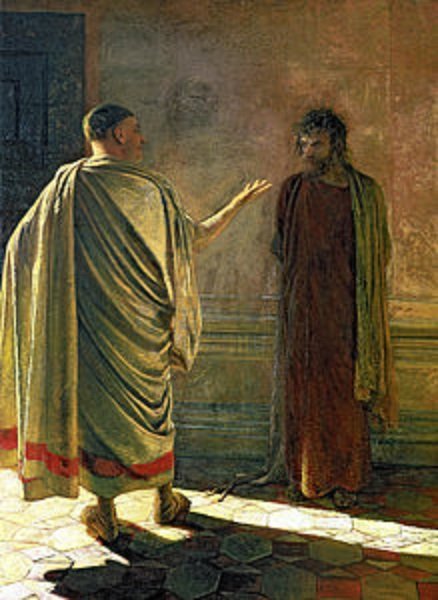I don't think that the essence of philosophy will change and I think that Christian philosophy, as it has accumulated as content in the Middle Ages, is not prescribed by its own nature to contain any specifics - medieval, pre-copernic, pre-Cartesian, in short, prehistoric signs, and that in order to be released, thanks to Galileo and Descartes from the deadload of this astronomy and this Aristotelian pseudophysics, which stubbornly confuse with metaphysics, if it depends on its assimilation abilities, at a perfectly contemporary level.

For a philosophizing human subject, for a philosopher in the position of a Christian one can conclude that there exist philosophical Christians. I have said that there is a Christian position about philosophy itself and that there is thus not only a philosopher-Christian, but a Christian philosophy. When some contemporary idealists talk about the nature of philosophy, they speak of something that is completely different from what we call this name as something that has begun to be realized three centuries ago, and that it does not have its own specific object and ultimately reflective absorption in the work of physicists and mathematicians, and in the basis of which there is some vague endearment, the desire to conquer for the human spirit that full of self-satisfaction that Jean-Jacques attributed to the deity when he is to be like God - completely pleased with himself and his consciousness. Here I am far from the wisdom that has been able to teach Christian scholasticism, which has given us the idea of our civilization at the same time.
Rationalism, denying every higher truth at the level of human reason, that is, preferring the sense of truth, was the first manifestation of the radical denial of contemplative objectivity. Only the science of phenomena has now preserved the last remnant of pure wisdom. I do not blame modern rationalists, such as Mr. Brunswick, for admiring and worshiping the intellectual asceticism of physics. I criticize them for not seeing that this is the first stage, the beginning of asceticism and the spirituality of the intellect, the normal limit of which is the love contemplation of the saints.
Philosophy has two ways not to be dramatic, she is either very familiar with the drama of human life or not. the last option, I think, is about tomism.
Once the world has learned that God is the true truth and has loved the one who has said, "The truth will make you free!", "I have come to the world to testify the truth," and "I am the truth," it is in the bosom of our culture that the development of the religious reverence for the truth has developed, and therefore any truth, even the most controversial and more dangerous, becomes sacred if it is true. When I say that the Christian position of philosophy - this is a higher and privileged position, this is above all because only in this situation philosophy can enjoy the universal and full respect, so humanly incorruptible, that it is necessary to recognize the superhuman origin , the origin of the holy truth.
Vidisti hominem sapientem sibi videri? Magis illo spem habebit insipiens.
Downvoting a post can decrease pending rewards and make it less visible. Common reasons:
Submit